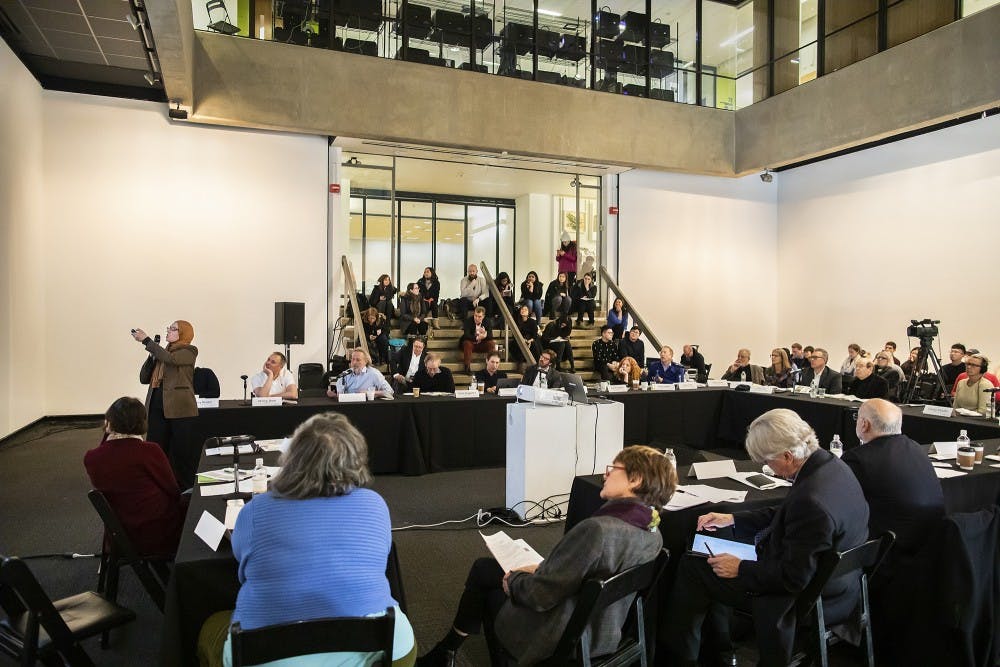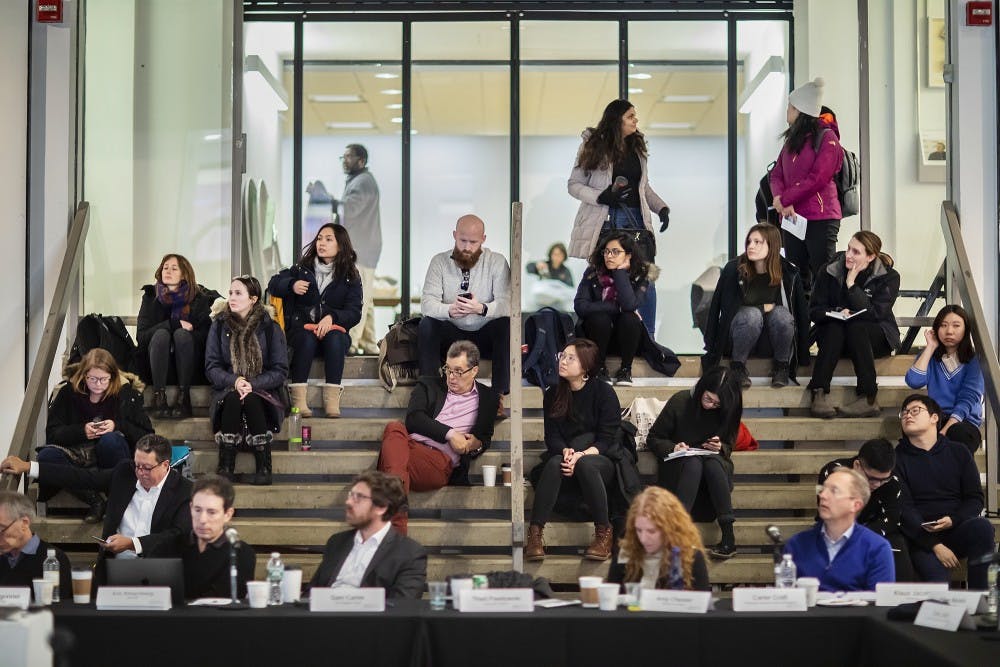
Graduate students pursuing master’s degrees at PennDesign can now earn a certificate in urban resilience. (Photo from Eric Sucar)
Penn's School of Design recently launched a new certificate in urban resilience, which teaches students how to use design principles to address the growing issue of climate change.
The urban resilience certificate is offered to graduate students pursuing master's degrees in PennDesign. The program, which launched in fall 2018, aims to teach students how to design structures that take into account the instability created by climate change and that address environmental issues, such as major storms and sea level rise.
To complete the certificate, students take elective courses in various design departments, as well as the Wharton School and the School of Engineering and Applied Science. Some courses include “Topics in Digital Media: Simulated Natures,” “Water Policy and Planning,” and “Risk Analysis & Environmental Management."
The certificate is administered by Matthijs Bouw, a landscape architecture professor who is also PennDesign’s Rockefeller Urban Resilience Fellow and McHarg Center Fellow for Risk and Resilience. Bouw teaches the certificate’s core curriculum, including a course and studio focused on designing with risk. There are seven students currently enrolled in the program.
Bouw said the program is essential for designers of the future because they must be able to design for a reality that is both unknown and unstable.
“The ultimate idea of resiliency is that cities and communities can suffer from unpredictable shocks and catastrophic events,” Bouw said. “What we aim to do is to find a way that communities can deal with this and even transform for the better.”

Photo from Eric Sucar
Bouw said the program focuses on two sets of skills — first, the background necessary to understand the issues surrounding climate change and design, and second, the tools needed to actually engineer the designs.
First-year Landscape Architecture graduate student Katie Pitstick is currently enrolled in the certificate program. She said landscape architecture is a valuable tool for dealing with climate-related issues, as proper landscape design can help cities survive shocks such as flooding.
“I decided to return to school primarily to focus on urban resilience, because I believe that landscape architecture is a solution to the problems faced by climate change and will allow us to combat these challenges,” she said.
Pitstick added that PennDesign’s focus on resilience convinced her to choose Penn for her graduate studies.
Perry Ashenfelter, a graduate student in the Architecture and City and Regional Planning program who is also pursuing the certificate, said she appreciated the certificate’s interdisciplinary nature because it combines her interests in architecture and city planning.
“I was very unsure coming into grad school on if I wanted to focus on the building or city planning side of architecture, or both,” Ashenfelter said. “At the same time, this is when this new program in urban resilience was announced, and looking into that it kind of just made more sense to pursue this certificate.”
The Daily Pennsylvanian is an independent, student-run newspaper. Please consider making a donation to support the coverage that shapes the University. Your generosity ensures a future of strong journalism at Penn.
Donate




